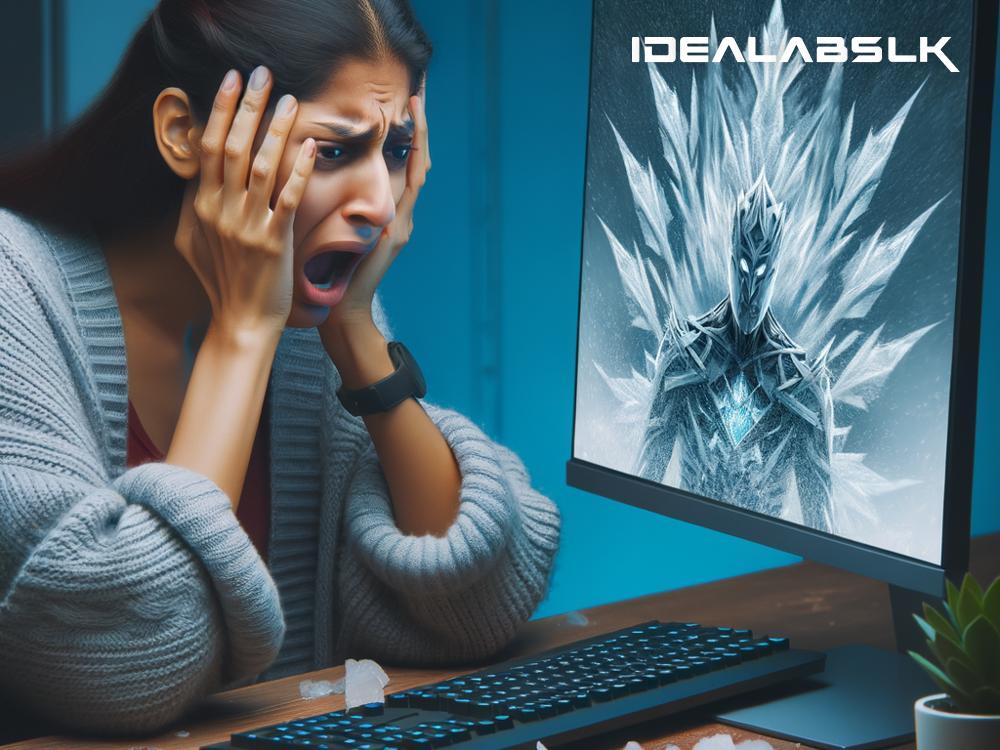How to Fix 'PC Freezes When Running Graphics-Intensive Apps'
Experiencing your PC freezing up when you’re in the middle of running graphics-heavy applications like video games or video editing software can be incredibly frustrating. It's like gearing up for a marathon only to trip at the starting line. But don’t worry, because with a few tips and tweaks, you can often solve these issues on your own. Let’s embark on a troubleshooting adventure to keep those freezes at bay and get your PC running smoothly again.
Understand Why Freezes Happen
First, let’s break down why graphics-intensive apps might be causing your PC to freeze. These applications demand a lot from your computer's CPU (Central Processing Unit) and GPU (Graphics Processing Unit). If your system can't keep up with these demands, it might freeze, stutter, or crash. Potential culprits behind this include outdated drivers, overheating components, insufficient system resources, or even software conflicts.
1. Update Your Drivers
Starting with the basics, ensure your graphics card drivers are up to date. Graphics card manufacturers frequently release updates that improve performance and compatibility with applications. You can usually find these updates on the manufacturer's website or through your PC's device manager.
2. Cool It Down
Overheating can lead your PC to freeze as a protective measure to prevent damage. Check if your PC is hotter than usual when running graphics-intensive apps. If so, improving ventilation and cleaning out dust can help. Consider adding more fans, or if you’re feeling adventurous, look into liquid cooling solutions.
3. Give It More Juice
Sometimes, your PC might not have enough RAM (Random Access Memory) or VRAM (Video RAM) to handle heavy-duty tasks. Upgrading your RAM can provide your system with the boost it needs. As for VRAM, it's tied to your graphics card, so if you're consistently hitting the upper limits, it might be time to consider a more powerful GPU.
4. Optimize Your Settings
Tweaking in-app settings can drastically reduce the workload on your GPU and CPU. Lowering the resolution, textures, or turning off fancy visual effects might just do the trick. It’s about finding the right balance between visuals and performance.
5. Close Background Applications
Running multiple applications can sap your system's resources. Before launching a graphics-intensive app, close unnecessary programs. This frees up RAM and CPU cycles, allowing your primary application to run more smoothly.
6. Check for Malware
Malware or viruses can significantly hamper your PC’s performance. Running a thorough antivirus scan can help identify and remove malicious software that might be causing system freezes.
7. Update Your Software
Just as you should keep your drivers up to date, ensure the application causing freezes is running on the latest version. Software developers often release patches that fix bugs and improve performance.
8. Take a Look Under the Hood
For the more tech-savvy users, checking your system’s Event Viewer after a freeze can provide valuable insights. Look for critical errors around the time of the freeze; this can point you towards specific hardware or software issues.
9. Reinstall the Troublesome App
Sometimes, the simplest solution is to start fresh. Uninstalling and then reinstalling the application can resolve underlying issues, especially if the initial installation was corrupted.
10. Consider the Nuclear Option
If all else fails, and your PC is still freezing, backing up your important data and performing a clean install of your operating system can work wonders. This is a last resort, as it’s time-consuming, but it can fix deep-rooted software issues.
While PC freezes can be disheartening, these tips should help you tackle the problem head-on. Remember, maintaining your PC and regularly checking for updates can prevent many issues before they start. Don’t let a little freeze put your digital adventures on ice; with a bit of patience and some tweaks, you’ll be back to running graphics-intensive apps in no time.

